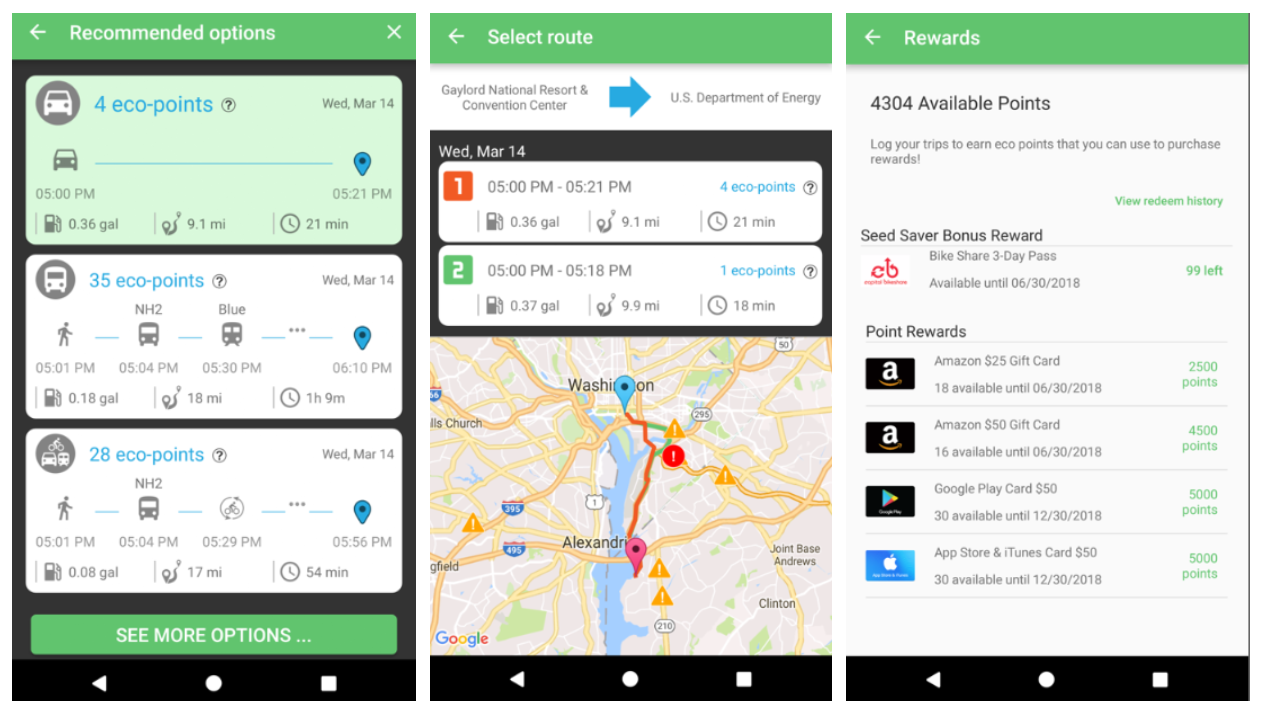"If you're going to have a robust public transit, you have to have incentives and disincentives to ride public transit," explained urban planner and author Carol Coletta during a 2018 KI Forum.
"People opt for convenience. If you can do that, you'll get results."
Driving in Houston is just too convenient for people to use public transit or find alternative ways to travel.
Parking is largely free throughout the city. Reliability of transit systems isn't always guaranteed. Gas prices remain among the lowest in the country.
But with gloomy reports on climate change and a recognition of the benefits of transit, communities, companies and government entities around the world are promoting other modes of transportation for users through various incentive programs.
Recently, the Department of Energy partnered with University of Maryland researchers to develop a new app, called Incentrip, for commuters to use more environmentally-friendly routes in order to receive monetary rewards for their commute. The better their commute is for the environment, the more points - and, thus, money - they'll get back for their trip.
The app is currently being piloted in Washington, D.C. and Baltimore and when users put their destination into the app, they're shown a handful of travel options, including car, bus, subway, biking and ride-sharing, with information about length, time, amount of fuel consumed and how many points earned. Driving in your car by yourself earns the least amount of points. Meanwhile, public transportation and riding-share earn more, but walking or riding your own bike earn the most. The more points earned, the more money the traveler can get back from the app in an effort to incentivize the most environmentally friendly commutes.

Screenshots of Incentrip
In 2017, the Rocky Mountain Institute employees in Boulder, Colorado started to receive a parking cash-out program. This allows employees to choose between a parking spot at the office or cash in lieu of parking, either to put toward an alternative commute - like biking or ride-sharing - or as a reward for not driving. Similarly, several European countries have bike-to-work schemes with different kinds of incentives such as tax breaks, payments per kilometer and financial support.
I recently conducted my own transit incentives analysis. During the summer, I was enjoying free parking at my office building, but that changed in September when $50 of every two-week paycheck was deducted for parking. With this, driving got a bit less convenient for me. Furthermore, I learned from a coworker that I could get directly to my building in 15 minutes through a single bus route less than a quarter mile from my apartment.
Another incentive for me to change my ways came when the United Nations published its climate change report. In the report, the U.N. panel of scientists said that global carbon emissions must be cut in half by 2030 if the world hopes to remain beneath the warming temperature of 2.7 degrees Fahrenheit, which would cause a rise in the ocean's temperature resulting in a rise in natural disasters such as hurricanes and typhoons.
Amid a mountain of data, though, one, singular quote shook me to my core and made me decide to change my commuting habits:
"What we choose to do in the next 15 months will determine the path we set for our children. Do I want to tell my kids that their neighbors opted to preserve parking over their well-being? Do I want to tell my kids that their parents chose the convenience of an SUV over their shot at a future," Alissa Walker wrote for Curbed.
These were my reasons for changing my commuting patterns, but you may have others. Maybe the knowledge of public transportation being significantly safer than driving yourself - so much so that commuters reduce their crash risk by more than 90 percent when taking public transportation instead of driving. Maybe the realization that you can safely text your friends, scroll through Instagram, read a book or talk on the phone while on the bus without concerns of crashing or getting a ticket is a motivator. Maybe the findings pointing to alternative commuters being thinner and healthier than their self-driving counterparts will motivate you.

